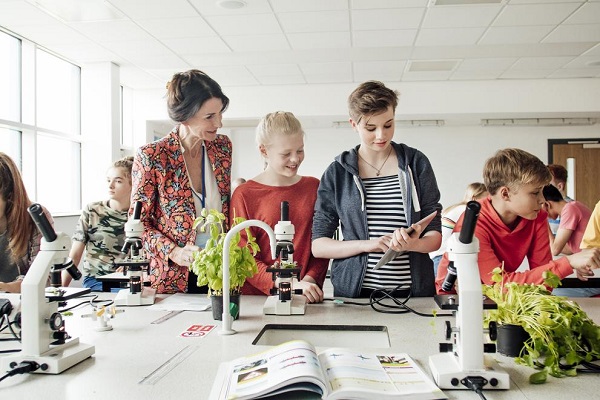2022 European Innovative Teaching Award laureates

The annual initiative highlights outstanding teaching and learning practices within the Erasmus+ programme. Projects are awarded in four categories: early childhood education and care, primary education, secondary education and vocational education and training (VET).
The Erasmus+ National Agencies are responsible for selecting the winning projects, with a total of 98 projects across all four categories being recognised this year. The European Award Ceremony will be held on 25 October 2022.
The thematic focus of this year’s EITA is ‘Learning together, promoting creativity and sustainability’. It is linked to the Commission’s New European Bauhaus initiative, which invites us to reimagine our living spaces with creativity, inclusion and sustainability in mind. The winning projects presented below deal with one of these three topics.
Creativity
The Everyday Creativity project, led by the Fundatia Centrul Educational Spektrum in Romania, used Finnish educational models to boost creativity and innovation in teaching practices in participating countries. Following on-site training in Finland, classrooms were redesigned to create welcoming and user-friendly learning spaces. Teachers used multidisciplinary approaches to inspire creativity and shared best practices with each other. A Teachers’ Handbook was produced containing resources such as learning materials and self-assessment tools.
The Young Talents project brought business, artisan and interior design students in VET schools together to create new multicultural brands. The students, from Finland, Spain and the Netherlands, were supported by teachers and entrepreneurs to implement their projects, using a cross-sectoral approach. They established six companies in mixed groups, developed their brands and sold their products both in retail stores and online.
Inclusion
The Bridge of Encounter and Understanding was a collaboration between disadvantaged youth from two partner schools in Germany and Spain. The purpose of this project was to engage VET students with learning difficulties in a practical project – building a monument to represent the commitment of the two schools to their partnership. This project improved students’ employability, while enhancing their technical skills and intercultural competencies. Teachers worked together across borders to apply an integrated multidisciplinary approach, linking maths, science, social science, arts, languages and history in one project.
The FARMID project sought to promote and develop knowledge and guidelines on the employment of people with Mild Intellectual Disability (MID) on farms throughout Slovenia and partner countries Austria, Italy, Belgium and Spain. People with MID are often at a disadvantage, achieving lower levels of education, which can negatively affect their employment opportunities. FARMID promotes social inclusion and highlights the suitability of farms as places of work for people with MID. This project helped several people with MID to find employment in farm-related jobs. It also developed a training programme to equip farmers with the necessary skills, knowledge and competences for the employment of people with MID.
Sustainability
Hob’s Adventure was a hands-on biodiversity project that brought together teachers and experts in Estonia, Latvia, Iceland and Slovenia to create innovative teaching materials on biodiversity in the digital era. They drew on best practices to produce these materials, using hands-on, active and inquiry-based methods. The outcome is a handbook containing lesson plans, projects and activities for pupils aged 5-9. The tools are adaptable to different environmental and educational contexts and encourage active indoor and outdoor learning.
Teachers at Sint-Paulus primary school in Belgium were inspired to transform their concrete playground into a climate adaptive playground and outdoor learning space through the Erasmus+ programme. Over 40 trees and 160 indigenous shrubs were planted, chickens and bees were introduced and a rainwater harvesting basin was installed underneath the playground. The project promotes student well-being and has helped to innovate teaching practices, as teachers can use the outdoor learning space to integrate STEAM (Science, Technology, Engineering, the Arts and Mathematics) and climate change topics into their curriculum.
Additional information
-
Evidence:N/A
-
Funding source:Erasmus+
-
Intervention level:N/A
-
Intervention intensity:N/A
-
Participating countries:BelgiumEstoniaFinlandGermanyIcelandLatviaNetherlandsRomaniaSloveniaSpain
-
Target audience ISCED:Primary education (ISCED 1)Lower secondary education (ISCED 2)Upper secondary education (ISCED 3)Post-secondary non-tertiary education (ISCED 4)
